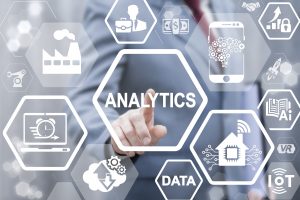Yesterday I took a day out to attend not one, but two online virtual events.
First up the LARIA webinar on Predicting the Future, which launched the LGA’s guide on The Use of Predictive Analytics in Local Government, swiftly followed by the 7th ODI Summit – their first wholly online. Cue 9 hrs of talks, panel discussions, informal chats, films and games,

and I, together with another 1,300 people from 72 different countries, experienced an epic day of learning, which reignited my passion for connecting and sharing experiences to benefit us all – all from the comfort of my living room!
I was lucky enough to take part in the LGA’s action learning set, which concluded at the beginning of the year. Together with 14 other Councils we each shared our experience of applying predictive analytics and the challenges we had to overcome. The outputs of our time together have been used to inform The Use of Predictive Analytics in Local Government, which launched yesterday.
The guide starts with the importance of use of language; having clarity over what we mean by predictive analytics – use of historic data to predict new cases - and what we don’t mean - exploration, linear relationships and strategic planning. It notes that some Councils are at earlier stages than others, and shares some really groundbreaking application examples helping organisations to target scarce resources, develop decision-making tools, deliver time critical alerts and improving outcomes.
It’s clear that this type of work doesn’t come without risks and challenges, concepts of data literacy, ethics, engagement, checks and balances, were noted as themes that continued into the ODI summit. But the guide does help Councils to think about how to implement predictive analytics projects and highlights best practice. I’m glad ecda and ECC could be a part of the conversation, and that our learning to date contributed to the development of the guide.
Following the LGA session my afternoon was spent online at the ODI summit, exploring the ways in which we harness the power of data and the many ways in which data can shape the world. We delved into the many possible futures that might emerge; depending on how we gather, steward and utilise data as individuals, as organisations and as society as a whole.
I heard from such a diverse set of speakers from John Whittingdale, Minister of State for Media and Data in the Department for Digital, Culture, Media and Sport talking about the national data strategy and Jeni Tennison, Vice President at the Open Data Institute talking about using all varieties of open data to support rapid response research, and the future of data institutions. Right the way through to Dr. Safiya Umoja Noble's Algorithms of Oppression: How Search Engines Reinforce Racism and The UK Information Commissioner, Elizabeth Denham, considering who organisations are accountable to when they innovate with data.
 It was a real mixed bag, with each element important to listen to and understand. A key theme was learning to recognise the impact data has on our lives, and listening to diverse communities, talking about what might go wrong, and how that is just as important as the technical application of analytics. As is allowing people to help inform the research questions – ensuring we look at things that matter to people the most, empower them and include them. At ecda we've been talking to our communities throughout the past six months, explaining the work we're doing, seeking their opinions and working with them to create roles for citizens within ecda's programme.
It was a real mixed bag, with each element important to listen to and understand. A key theme was learning to recognise the impact data has on our lives, and listening to diverse communities, talking about what might go wrong, and how that is just as important as the technical application of analytics. As is allowing people to help inform the research questions – ensuring we look at things that matter to people the most, empower them and include them. At ecda we've been talking to our communities throughout the past six months, explaining the work we're doing, seeking their opinions and working with them to create roles for citizens within ecda's programme.
My top takeaway from yesterday's day of learning was the importance of data literacy - how everyone needs to be involved to up the game - understanding data and how you can use it, regardless of your role. These are skills that need to be taught at an early age and developed beyond just 'data people'. Let's consider how we educate children in both English language and English literature in schools, and how we might develop the equivalent of this with data - people who can work with data and understand how to manage it but also people who can critique it, and understand the constraints and impact on society.
It wasn't all talk yesterday, I also had good fun playing a virtual game of Datopolis a board game about building things – services, websites, devices, apps, research – using closed and open data.
It’s astonishing how you can connect with even more people, and hear the experiences and views of others, and not even leave your own home. We need MORE sharing opportunities; I want to learn about what others are up to.
So, to conclude a day of amazingly insightful conversations - I learnt an enormous amount and I’m left feeling optimistic about the future of data. If you’re reading this blog and you’re not doing data analytics – give it a try, you will definitely learn something new and will have something valuable to share. Be part of the equation (shameless plug for our data network!).
Leave a comment